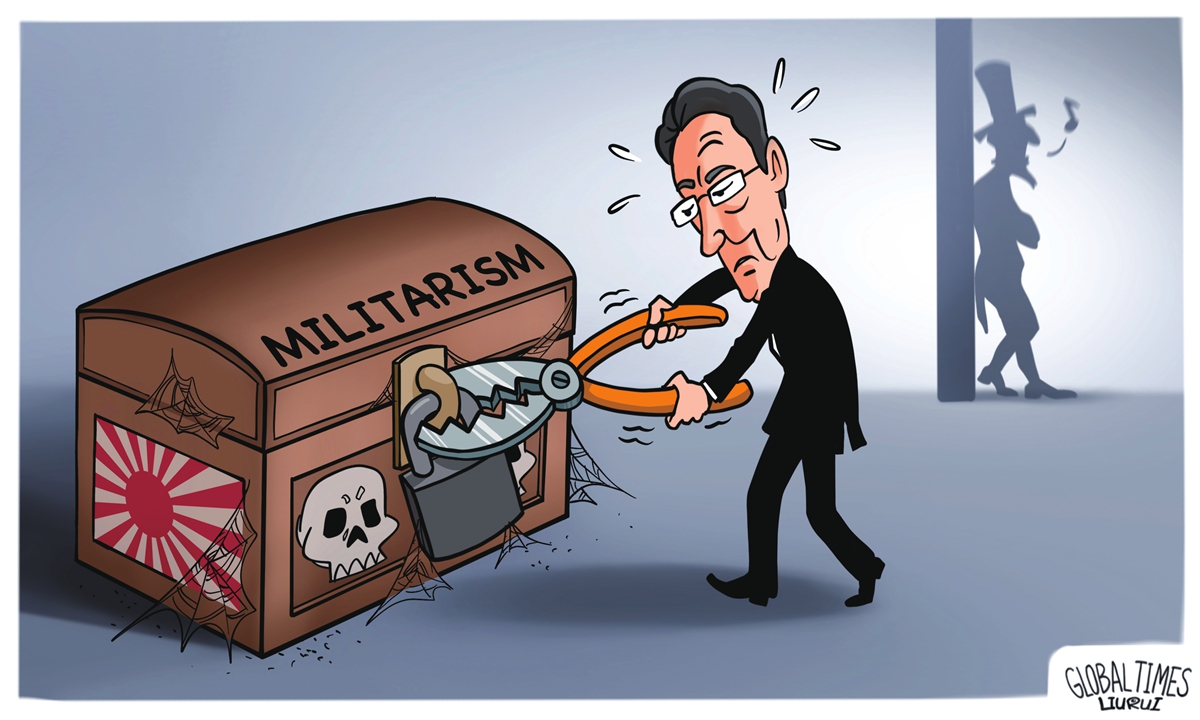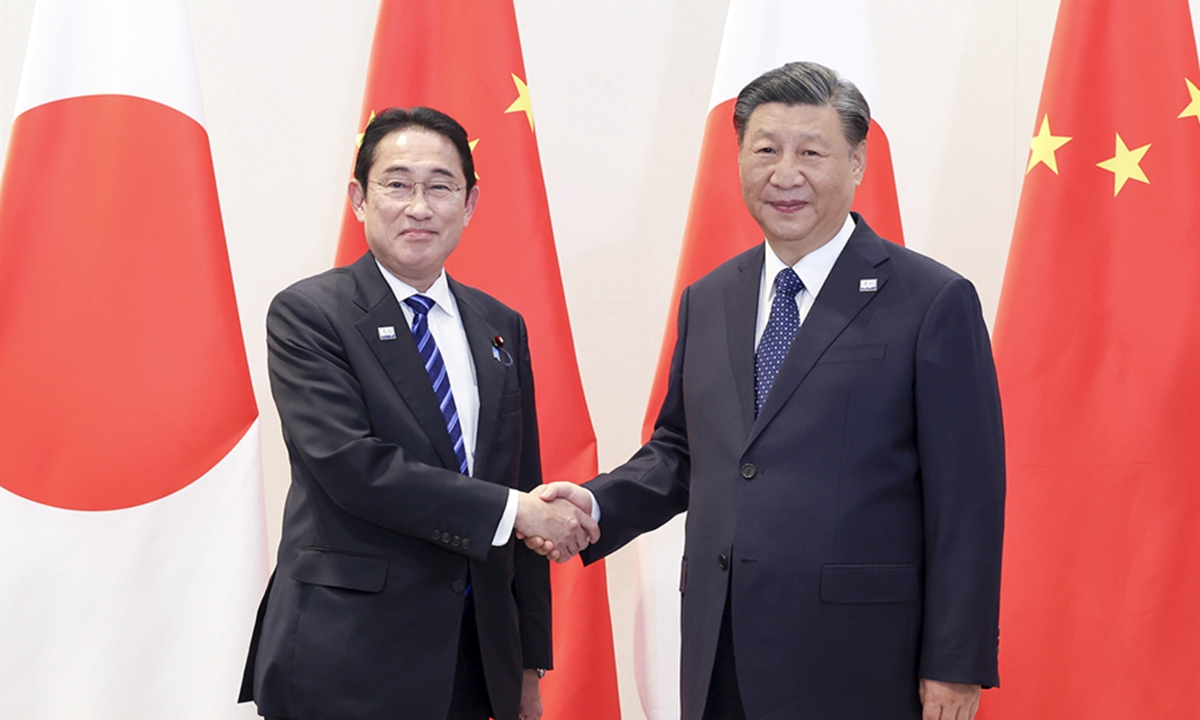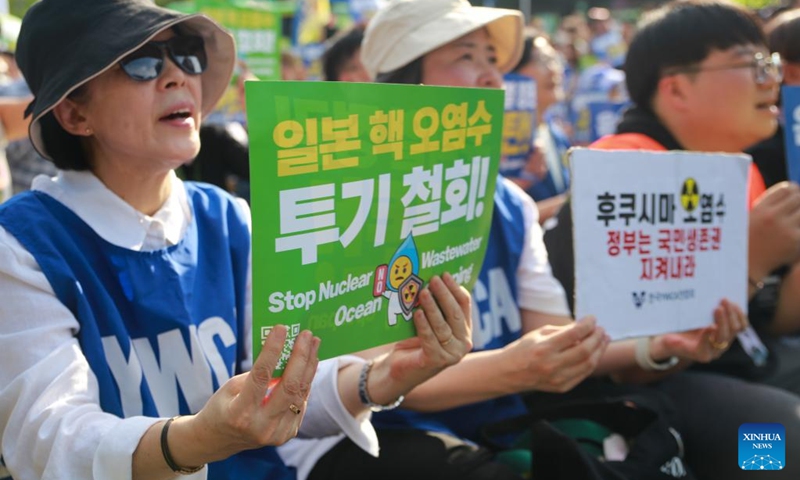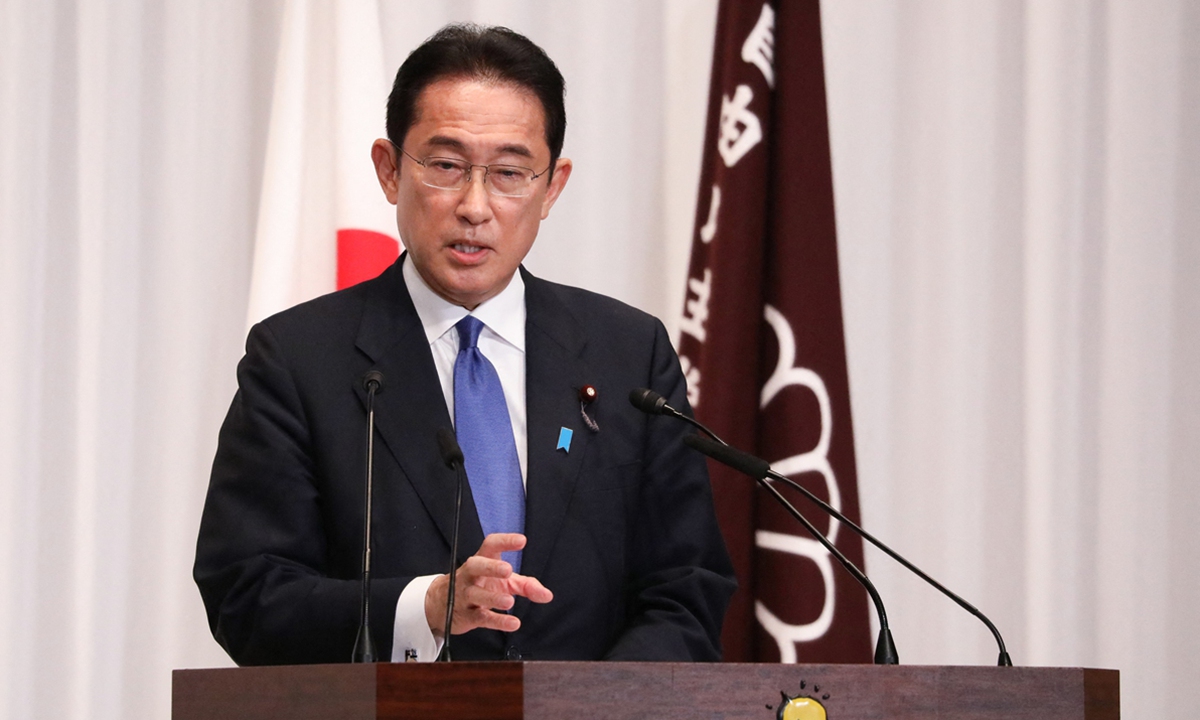As Japan seeks record defense budget for fiscal 2025, experts warn of militarism resurgence

Illustration: Liu Rui/GT
As Japan seeks another record defense budget of 8.5 trillion yen ($59 billion) for fiscal 2025, Chinese experts said on Saturday that the continuous increase reflects the militarism resurgence of the country which has committed serious humanitarian crimes in the past, and that Japan's dangerous ambition warrants global vigilance and should be jointly stopped by the international community.Japan's Defense Ministry requested a record budget of 8.5 trillion yen for fiscal 2025 on Friday, aiming to enhance remote island security by deploying unmanned vehicles "amid China's growing military assertiveness," Japanese media outlet Kyodo News reported.
The ministry also wants to use its budget to prompt acquisition of foreign missiles and expand the domestic production base for those capable of striking distant targets, according to the report.
Senior Colonel Wu Qian, a spokesperson at China's Ministry of National Defense, said at a press conference on Thursday that in recent years, Japan has continuously hollowed out the pacifist constitution, seeking to break free from the constitutional restraints, significantly increase its defense budget, intensify military connections with countries outside the region, and continued to run wildly on the dangerous path of expanding military preparations. This deserves high vigilance from neighboring countries and the international community, Wu said.
"We urge Japan to face up to and deeply reflect on its history of aggression, and gain the trust of its Asian neighbors and the international community through concrete actions. We will never allow militarism to rise again," the spokesperson said.
Chen Hong, executive director at the Asia Pacific Studies Center of East China Normal University, told the Global Times on Saturday that Japan's planned record defense budget is driven by its ambition to expand military presence, particularly to strengthen its influence in the Southeast Asia region.
Chen added that the continuous rise can also be attributed to the ongoing pressure from the US on its ally to bolster Japan's budget to support Washington's military deployment in the so-called Indo-Pacific region.
Lü Chao, dean of the Institute of American and East Asian Studies at Liaoning University and research fellow at the Charhar Institute, underscored that the hype of "China's growing military assertiveness" by Japan as an excuse to expand defense budget is completely groundless. "China has never made any so-called military threats against any country, including Japan, and the development of the Chinese military is entirely for self-defense," Lü said.
In contrast, Japan has continued to provoke China on the South China Sea issue, the Taiwan question, and the Diaoyu Dao issue, with the aim of creating tension and shifting the blame to China for increasing defense budget, Lü told the Global Times on Saturday.
According to the Japan Times, the country's budget request for fiscal 2025, a roughly 10 percent increase over last year's record 7.7 trillion yen, is the third of a five-year spending plan of around 43 trillion yen, as Japan aims to spend two percent of its gross domestic product on defense by 2027.
Experts emphasized that Japan's remarkably high defense budget, which far exceeds its actual defense needs, is raising concerns among neighboring countries and the international community. They warned that it's crucial to remain vigilant to prevent a resurgence of militarism in Japan.
Japan must learn from the lessons of history, take concrete actions to completely forgo militarism, and avoid losing credibility with neighboring Asian countries and the international community, Chen said.
The US is also urged to abandon unilateralism as well as double standards, given the fact that its promotion of the "Indo-Pacific strategy" is a contributing factor to the resurgence of Japanese militarism, Lü said.



